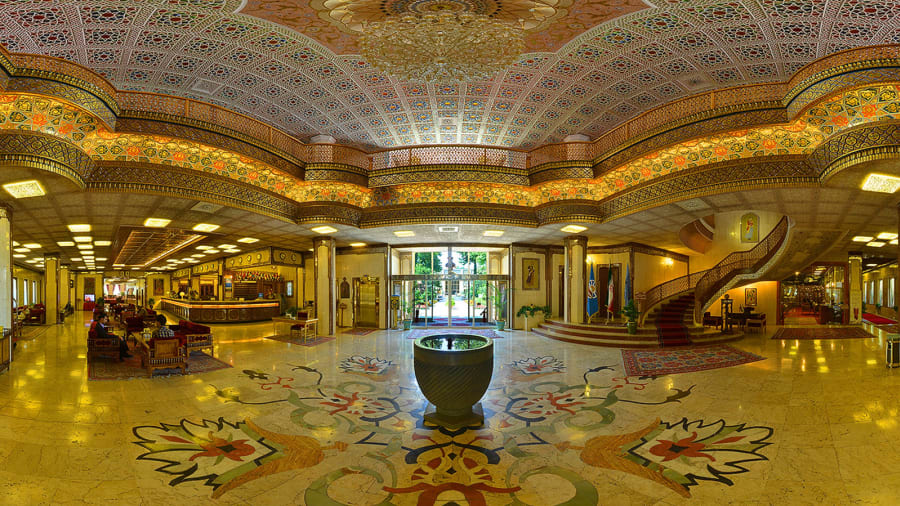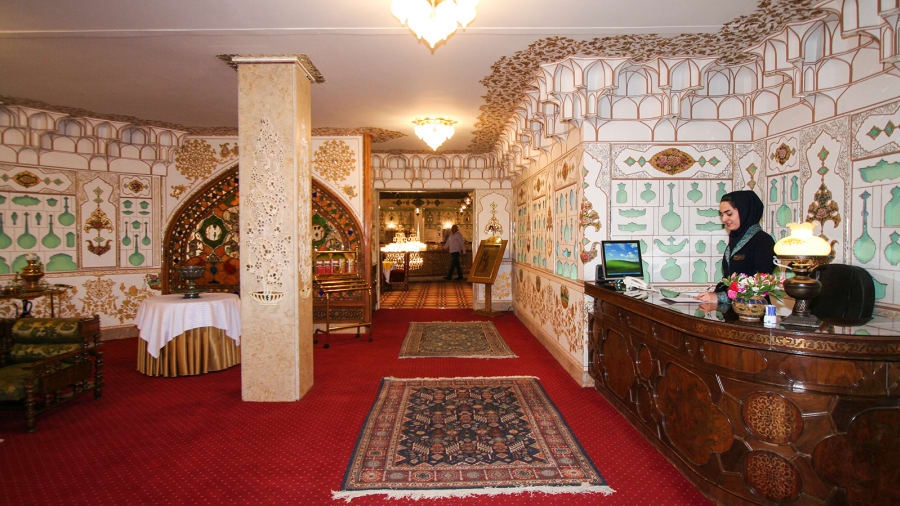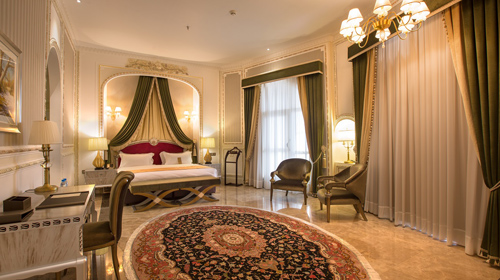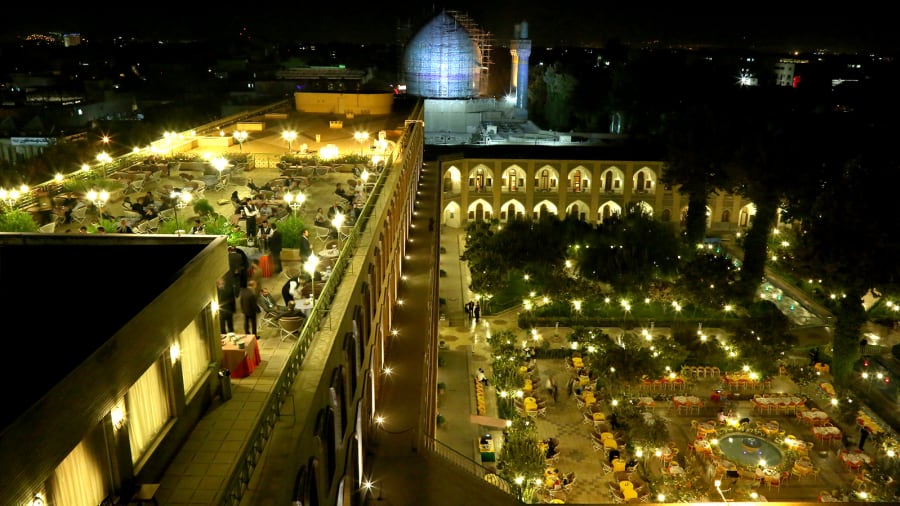Samira greatly appreciated the fact that Estanislao understood the important role MidAranye played in shaping Mundus. She, like many Tamorans, believed MidAranye was at the center of Mundus but that most foreigners did not want to admit that.
“You are right about MidAranye and its role in Mundus, Professor Caña. Through I often believe that many outside of MidAranye do not realize this. You are an expert so naturally, you know this. But those in other fields are, I believe, unaware of this and that is why visits such as these are important. It gets the truth out to more people. It is one of the reasons why I became a filmmaker and script writer. I wanted to show to all the invaluable contribution MidArnaye has made to Mundus.”
“I do apologize; I did not get a chance to ask you what your religion is.” In other countries that might have seen like an odd question to ask, maybe even impolite. However, in Tamora where religion was so fundamental to Tamoran society, the opposite was true. Asking one’s religion was one of the first things people did and depending on the answer, hosts were expect to try respect the religious requirements of their faith as long as long as it did not contradict their own (ex: if the guest was a Muslim it was impolite for a Christian host to offer him alcohol).
After Estanislao answered, Samira went on to talk briefly talk about her family mentioning that she was married, how many children she had (four), their age and what schools they attended. This was another Tamoran custom. People were expected to briefly mention about their family in order to build trust with their interlocutor. If one was married and had children it meant it was in good standing and trustworthy since any wrongdoing would be reflected on one’s family. If one was unmarried or worse separated, then that would raise issues about that person’s reputation and trustworthiness.
After Samira finished talking about her family she gave the chance to Estanislao to do the same. She did not however ask him about it. She was aware that some foreigners do not like that and she decided let him speak of it only if he wanted to.
The trip to the hotel was a very short one. So in the 10 minutes or so it took for them to talk it meant they already reached their destination. However, if Estanislao would pay any attention to the outside, he would see some glimpses of Djerb. The streets were busy with cars and the sidewalks also were also packed with people coming and going everywhere. Both men and women dressed very conservatively despite the heat. Most women covered their hair by wearing a hijab but not all. None of the men wore shorts or short sleeves. Religious symbols were present everywhere as was the Tamoran flag. They were present not just on window apartments but also in windows shops , street ads and especially street art. Some Tamorans were making the sign of the cross as they passed near a church, other were sitting on the bench praying and there were even street preachers in the most crowded intersections reading passages from their holy books.
Spoiler: Some highlights from Djerb • show 
One of the many religious billboards present all over Djerb.
Djerb was overwhelmingly Manist but Christian and Muslim faiths(among others were also present and tried to attract attention:

One Christian Church painted an entire outside wall with the Virgin Mary. Some Christian made the sing of the cross when passing near the wall.

Islamic banks always mentioned the word Islamic in the name. Most banks in Djerb were sharia compliant anyway because Manism also forbade interest but it was a way for Muslims to advertise their faith.

Other murals were secular in nature. One featured Tamoran fighter jets and images of Tamoran war heroes. Above them written in Parthian was “God bless the Emperor! God bless Tamora!”
The hotel where Estanislao would stay during his visit was among the most luxurious hotels available in Djerb where many diplomats or expats would stay during their time in Djerb. Compared to the most luxurious hotels of Royal Seleucid or Lodja it paled in comparison but it had all the services one would expect in a five star hotel.
As they entered the hotel the receptionist was just finishing with another client when she approached Samira:
“Lady Hanifnejad, it is an honor” she said bowing her head in respect. Because of her very popular films, many Tamorans knew Samira and greatly respected her and as such they addressed her with “lady”.
“This is professor Estanislao de la Caña, he will be staying with us for as long as he likes. Please see to it that he has everything he needs”. Even though the schedule was agreed beforehand and Samira knew how long Estanislao would stay it was considered impolite to mention a timeframe as it would be interpreted as he would be welcomed only for a limited time.
“Professor Caña, it is quite late and I know you must feel tired so I live you in good hands. I will be here at 10 am tomorrow it that is okay with you.”
After Samira left, the receptionist called a slave servant and asked her to escort Estanislao to his room.
Spoiler: The Prophet’s Grace Hotel • show If Estanislao were to search on internet about the Prophet’s Grace Hotel it would find out that the hotel was one of the many wholly owned and operated by the Church of Mani. While not the most luxurious of Djerb’s hotels it was definitely among the top ten. However, because of its long history as well as its prestigious owner (the Church of Mani) it was arguably the most sought hotel by tourists who were familiar with Tamoran culture.

The lobby of the hotel, like most Tamoran hotels, was lavishly decorated. It of course featured several portraits of the Prophet Mani as well as the Tamoran flag.

The receptionist welcoming the guests.

The slave servant escorting Estanislao. Tamora had about 15% of its population as slaves but in Djerb that percentage was much higher. Slaves were mandated to address free people with “Master”.
The slave servant addressed Estanislao after making a long bow:
“Master, would you please follow me“ as she escorted Estanislao to the elevators. The elevators were separate for men and women so the two would take separate ones to reach the top floor where the apartment was place.
The slave servant guided Estanislao to his room. After inviting him to enter the room first she then proceeded to the central portrait in the room, which of course belonged to the Prophet Mani, and bowed for several seconds. As soon as she was done she said:
“Master, that is the holy Prophet Mani. The founder of our Church” she said this deeply respectful and as if Estanislao could have managed to get this far in Tamora without knowing that.
“Master, should you need anything at all, I am available 24/7 so please call me. Dinner is served at 7 PM after prayer service. Do I have your permission to come at 6:50 to escort you to the dining hall?”
After Estanislao answered she resumed:
“You have a sign there, should you not want to be disturbed for any reason please leave it outside” she pointed at a signed that had in Parthian and Latin (ooc: or whatever the lingua franca of Mundus is considered) written: “Prayer service”, which in Tamora was codename for “Do not disturb”.
“Master, if there isn’t anything I can help you with then I will leave. Your luggage will be brought by the other slave servants in a couple of minutes”.
Spoiler: the hotel room • show 
The hotel was extremely luxurious by Tamoran standards and was among the best available in the hotel. The room featured among its decorations a portrait of the Prophet Mani, a Tamoran flag, a political map of Tamora and all its kingdoms as well as a painting by Dorri Kaviani, Tamora’s most acclaimed contemporary painter.

Having an original painting by
Dorri Kaviani on display was a rarity since they were worth a fortune. In this case however, as the hotel was owned by the Church, the artist had donated the painting, an aspect which was mentioned in the description below the painting.

The view from the window of the hotel room, it was no surprise that a large Manist Temple could be seen.
Should Estanislao decided to watch TV he would have access to dozens of Tamoran channels and a few foreign ones from Royal Seleucid, Abydos, Abuqiya and Clysperis. There were no foreign channels available from countries outside of MidAranye.
Spoiler: Tamoran TV channels • show
Only about half of Tamoran channels were in Parthian, others were in Arabic, Seleucid, Armenian, Turkish, Slavic the many languages of the Tamoran kingdoms. Thankfully the channels had subtitles so that guests could understand the shows.
The TV shows were heavily focuses on the religious affairs of the Tamoran empire with debates about when to pray, fasting, what is appropriate to wear, what are latest religious books, the life of the Prophet and his walis (ooc saints), what new temples were built. Aside from those, other topics debated or presented were the announced wedding of Emperor Abbas’ sons to Princess Thekla of Royal Seleucid and Pharaoh Akasha of Clysperis. There were ample debates about what that meant for the Safavid imperial family, if the wives would be good mothers to their future children, the religious conversion of Princess Thekla to Manism and what a mixed marriage with a non Manist like Pharaoh Akasha meant.
In external news: the overwhelming focus was placed on MidAranye affairs. The religious persecutions that took place in Clysperis in the rebel controlled parts were still discussed in great deal and several interviews were done with Tamoran solders that fought in Clysperis. News outside of MidAranye was few and mostly focused on Zimalia, Phuebra and Quintelia. When referring to East Moreland and other great powers of Mundus, the news were critical and had titles like “East Moreland deploys its carriers in an aggressive move”, “Rokkenjima plays with the lives of the Seleicid citizens unlawfully detained” “International sanctions are hurting the Tamoran people” etc
Criticism of the imperial government: if one were to search for criticism of the different channels it could find some among the lines of : Tamoran Armed Forces should be used more to in MidAranye and aboard, the government does nothing to promote Tamoran culture aboard, the Tamoran Emperor is too weak in dealing with foreign countries , some were critical of Emperor Abbas decision to marry his sons to foreign women rather than Tamoran ones, other blamed Emperor Abbas for allowing the Clysperis civil war to happen under his watch and for not opposing the deployment on non MidAranye troops to Clysperis. Emperor Abbas was often compared to his grandfather who expanded Tamora by annexing the kingdom of Attica or his father who established the Tamoran Protectorate of Clysperis and was seen as falling short.
Near the bed, on display was the Book of Mani so that those who used the room had a chance to reread or discover the holy book. A small note was left near the book mentioning that should requested, the Koran can also be brought.
Estanislao would not have more than an hour to explore the room since the slave servant knocked on the door to invite Estanislao to dinner.